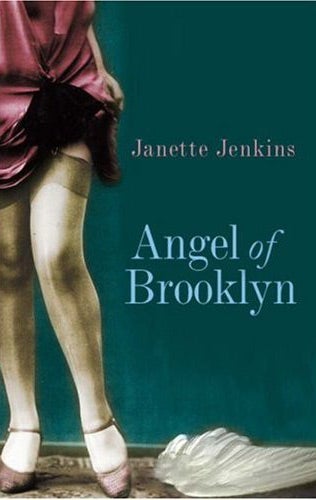Angel of Brooklyn, By Janette Jenkins
The divine tale of the showgirl who's an ocean apart from her new friends

Your support helps us to tell the story
From reproductive rights to climate change to Big Tech, The Independent is on the ground when the story is developing. Whether it's investigating the financials of Elon Musk's pro-Trump PAC or producing our latest documentary, 'The A Word', which shines a light on the American women fighting for reproductive rights, we know how important it is to parse out the facts from the messaging.
At such a critical moment in US history, we need reporters on the ground. Your donation allows us to keep sending journalists to speak to both sides of the story.
The Independent is trusted by Americans across the entire political spectrum. And unlike many other quality news outlets, we choose not to lock Americans out of our reporting and analysis with paywalls. We believe quality journalism should be available to everyone, paid for by those who can afford it.
Your support makes all the difference.There are any number of novels and biographies about the turn-of-the-century traffic between American and British high society. In her third novel, Janette Jenkins turns the tables on the Astors and Cunards, describing a migration of a less aristocratic kind. In January 1914, Jonathan Crane returns home to his village in Lancashire accompanied by a glamorous American bride.
A one-time Coney Island showgirl, Beatrice becomes the focus of village attention: the men drawn by her New World good looks, the women by her sassy clothes and tales of fast food and fairy lights. But as the realities of war take hold, and Jonathan and his friends sign up, Beatrice's stories of her colourful past feed the jealousy of the wives and mothers left behind. Jenkins, a fluent and concise storyteller, moves her narrative between New York and rural Lancashire, though Beatrice's memories of her boardwalk past outshine the more pedestrian accounts of Northern penny-pinching and parochialism.
Born and raised in Normal, Illinois, Beatrice is a woman with a past. Brought up by an eccentric father – an amateur taxidermist who meets a tragic end stuffing a neighbour's pet – she leaves home for a Methodist boarding house in Brooklyn. Hoping to land a job at Tiffany's, she winds up selling postcards to the well-oiled patrons of Coney Island's seafood bars and arcades.
Jenkins's tender narrative voice is well suited to a heroine still innocent enough to see the good in people. Happy to answer the villagers' questions about saltines and spaghetti, Beatrice wisely keeps shtum about her encounter with the world of saucy postcards and gentleman's-club porn. It emerges that, during her last summer on Coney Island, she agreed to pose for a German photographer dressed in nothing but a pair of white-feathered wings. It was as the "Angel of Brooklyn" that she first caught her husband's eye.
Combining a strong literary sensibility with a populist touch, Jenkins seductively glosses over the less palatable realities of Beatrice's life before escape into marriage. The sharp end of this morality tale is directed at the narrow-minded Lancastrians, who – shell-shocked by fear and loneliness – seek revenge of a particularly feminine kind. It's a tall order to mix American Gothic with gritty Northern realism, but Jenkins likes to keep herself and her readers entertained. This invigorating novel bottles the seasonal delights of both Coney and Morecambe Bay.
Join our commenting forum
Join thought-provoking conversations, follow other Independent readers and see their replies
Comments